The fourth week
Publicerad: 05.11.2023
Prenumerera på nyhetsbrev
Day 23-27
We had a good time in Há Tiên! We often lay on the beach or swam or looked at the surroundings.
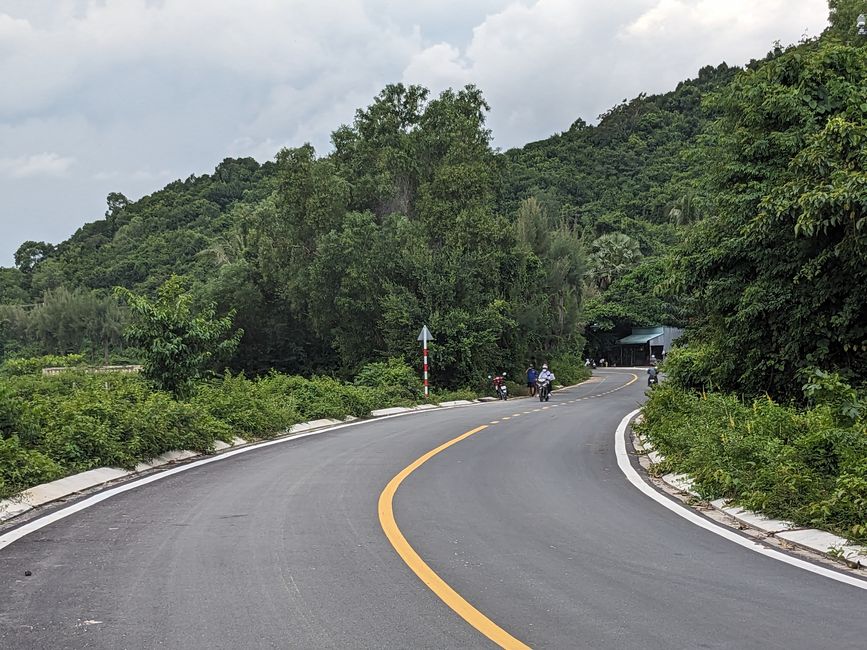
Apparently they have a lot of plans in Há Tiên, because there are a lot of areas that already have streets and sidewalks, but the houses are still missing!
One day we had to do a bit of planning. Finally, we want to go to Cambodia and we read that you have to pay for the visa with US dollars at the border. But where can you find US$ in a country where, as a foreigner, you are not allowed to exchange domestic money in banks?!
Ivar researched that you could exchange in jewelry stores.
The first store was a dud but gave us an address where we could exchange money. This address was a darker junk shop. The man offered us a reasonable course. But we still had a strange gut feeling about him. "Luckily" we didn't have enough dongs with us anyway and had to drive to the bank first. On the way back we tried two more jewelers and then found what we were looking for.
We heard from other travelers that you could only pay with “nice” banknotes in Cambodia: no stains, no creases and not too old.
In the jewelry store we examined the dollar bills very carefully and also looked at the water seal and such. We were very engrossed and the owner of the shop slowly became more impatient and louder. Although we didn't understand a word, the tone of voice, the melody of what was said and the looks left little room for interpretation. The young girl who served us only translated "she means that the money is okay for Cambodia". Very diplomatic!
We took the money.
Because it was raining, we ate some kind of rice pudding with coconut milk across the street. Was delicious!
Then we drove to a mountain. The place is called Núi Đá Dựng. There are many caves to visit. We walked around it and into each cave once. There were several steps up and down. We bathed in our own sweat! It was still nice though!
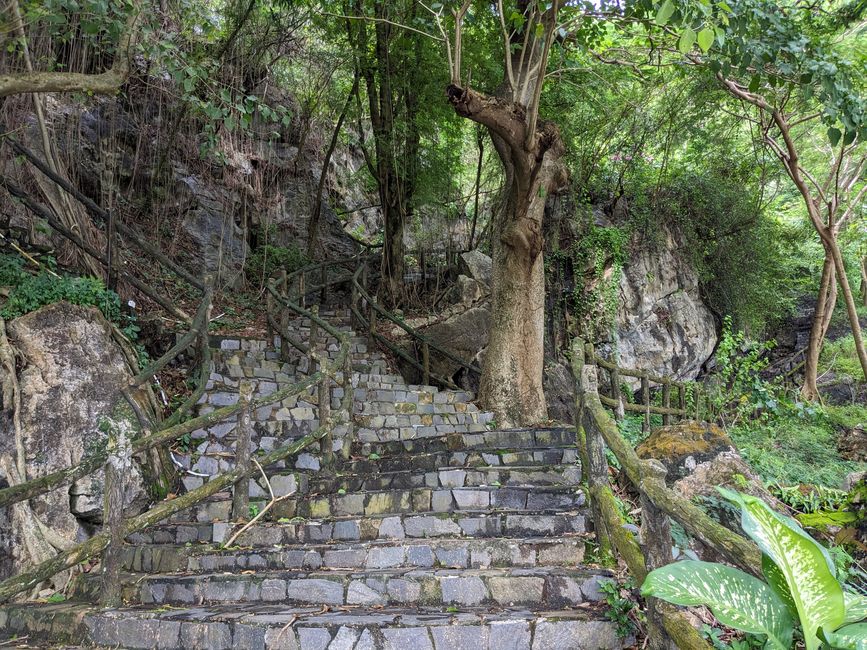


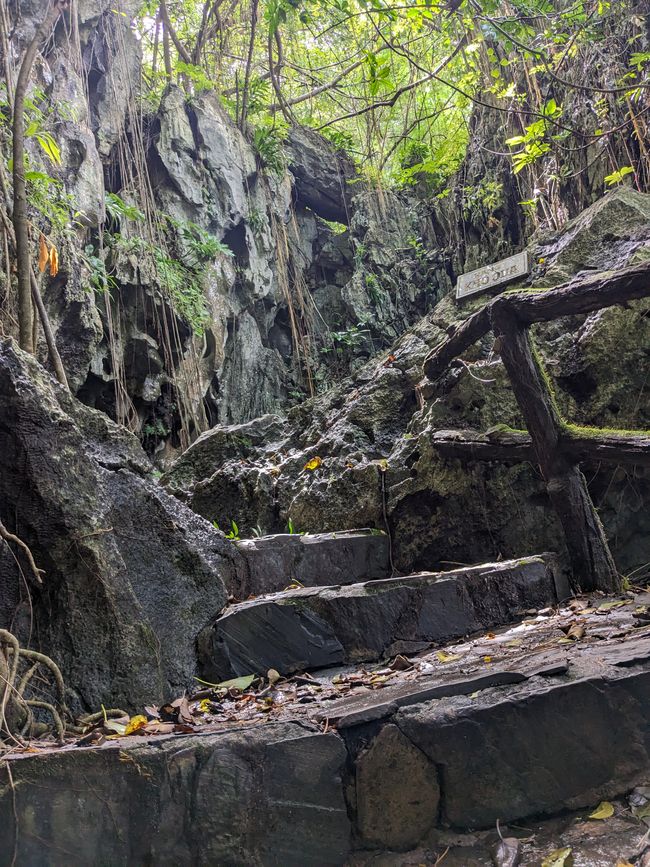
On November 1st we had one last day in Há Tiên and Vietnam. Our laundry was washed at the hotel and then taken outside to dry on the street. Clearly visible to every person who passes by. The panties and my bra (front row) fluttered in the wind.
Even though it was warm, the hotel managed to return our things to us in the evening, still slightly wet! So we “decorated” our room with the laundry. Oh well.
Early in the morning of November 2nd. we drove to the border with Cambodia. My goodness, boundaries always make me nervous! We had to show our passports a total of 8 times:
Once with the guy at the barrier to even get into the area. Then to the guy who checked the papers on our scooters. Then to the guy who gave us the stamp to leave the country. Then with the guy at the barrier to the Cambodian border control area. Then with the guy who gave us the Cambodian visa for 40 US$ per person (according to the embassy the visa only costs 35 US$, but Ivar told me before the trip not to argue at the borders). Then to the guy who took our fingerprints and also put a few stamps in the passport. Then to the guy in the room called "Quarantine" who took our body temperature (cost $1, which went straight into the super reputable drawer). Finally, the guy who pushed the barrier out of the area.
Actually, it's often like this: you drive across a border and at first it's not much different. After all, national borders do not stop sediments, plants or anything else. A seed also blows over a fence.
But we were surprised. After the swampy Mekong Delta, Cambodia presented itself with red earth! Really rusty red!
People drove much more relaxed and there was less lifting! Ivar raved about the roads, which are not as random as we are in Vietnam (sometimes asphalt, then moguls, some gravel. Or like in Há Tiên: nice asphalt roads, just not at intersections! There was gravel. Somehow they messed it up or nobody felt it responsible for intersections).
Ivar would come to regret his initial euphoria!

We drove past salt marshes and then we saw it. In the middle of the landscape. Something we haven't seen in a long time. It revealed itself to us in all its beauty! The long lines, the gentle curves, the slightly raised presence: a dike!
We drove this to Kampot. Unfortunately it was all gravel combined with red earth.

We arrived in Kampot covered in fine red dust.
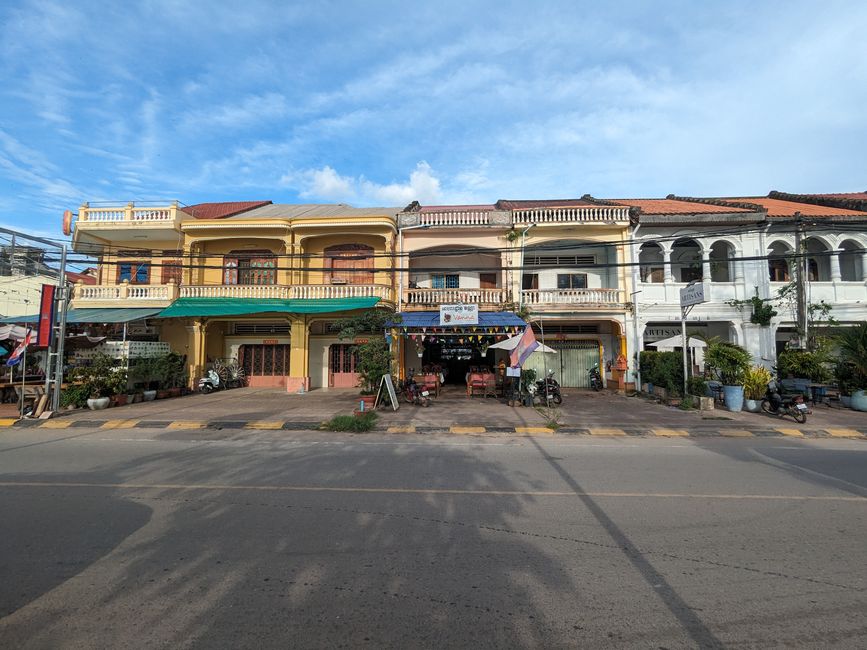
After we checked into our room in the hostel and showered, we ate something.
Since Cambodia is a bit more international, they have pizza and stuff like that. There were 7 men in the pizzeria. White, gray-haired, aged 55 and over. Some with a wide-brimmed, greasy leather hat, the remaining long hair in a braid, some just in a shirt and shorts or even just shorts. Similar calibers drove past the pizzeria. What's going on here???
I researched that it is easy to get a visa in Cambodia, which is why pensioners like to come here. Understandable. Nice and warm, good food, only the health system is so well. A friend from Germany, Isabelle, who had already been to Cambodia, had another idea.
We got new SIM cards and then chilled out in the hostel for a bit. In the evening we ate in one of the food stalls.

We walked past bars and now we realized why the white, older, gray-haired men might still be here (and confirmed Isabelle's idea): sex tourism. The white, older, gray-haired men sat in bars with the young Cambodian women. Luckily the women actually looked like women and not like young girls who could perhaps be U18s. The whole thing disgusts me a bit.
We live in the "Sweet Pepper" hostel. There is a bar here. We came back one evening and the bar was busy with white, older, gray-haired men. We went to our room. Ivar said "I think we're in the center of the old men's hangout!" Excellent.
Cambodia is still a developing country and the women in particular are known for their beauty. For us Europeans and Americans it is cheap here. This also includes the Cambodian women who support their families with the oldest trade in the world. Or dream of a better future outside of Cambodia.
On November 4th We took the scooters to Bokor National Park in the Elephant Mountains. On the way there we were able to marvel at the first monkeys of our trip! The 1580km2 national park probably has the largest population of wild elephants in Cambodia. There are also said to be tigers, bears, gibbon monkeys and over 250 different birds!
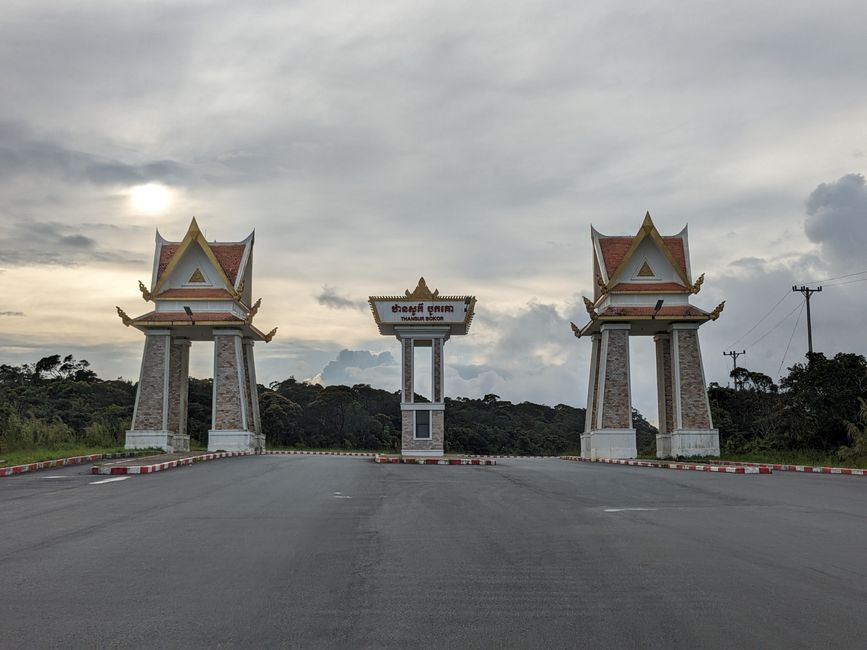

The area once thrived. There were many houses, hotels, a hospital, a Catholic church and a Chinese and Buddhist temple. Contemporary witnesses report that the streets were never empty.
Now things get a little serious and we delve a bit into the history of Cambodia (but only superficially. Not a dive, more like snorkeling). Because the country experienced a civil war and the Bokor Mountain was left to fend for itself. The Khmer Rouge came to power in 1975 and wanted to establish a peasant state. There were forced relocations of the urban population to the countryside to work. Ghost towns emerged. 12-hour working days were normal. All of the country's intellectuals, minorities and those deemed to be intellectuals were executed, including their spouses and children. Those who were not intellectuals had to work hard. Since there were no more doctors and the infrastructure was poor, many died of disease and malnutrition. Depending on the source, 1.6-2.2 million deaths are assumed. That was about 30% of the population. A genocide.
This reign of terror lasted until 1978. The last Khmer Rouge hid in the Elephant Mountains, on Bokor Mountain.
There are bullet holes, as silent witnesses to the horrific story.
The town on Bokor Mountain disappeared again from daily life. The Cambodian people probably had more important things to do after the Khmer Rouge regime.
The road up to town fell into disrepair and at some point became only accessible to off-road vehicles.
There is now a good road again and you can visit the ruins by scooter. Since every now and then a cloud passes by, the whole thing takes on a mysterious but also spooky touch when you think about the history of the place.

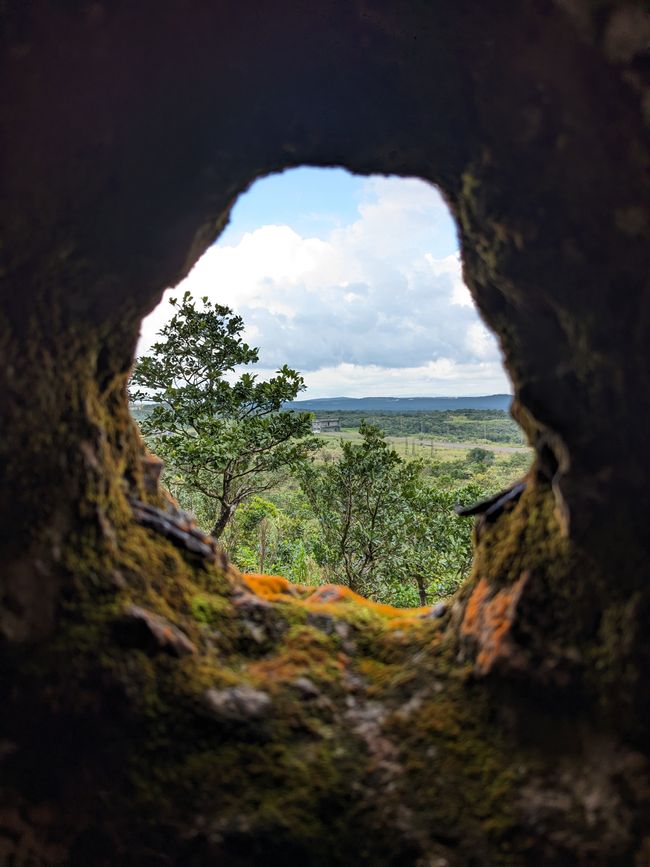
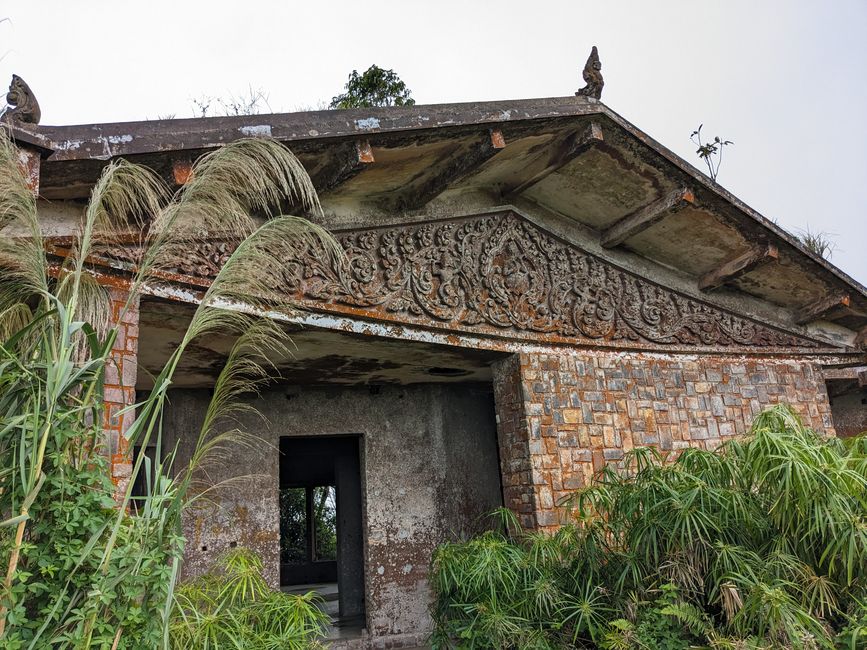


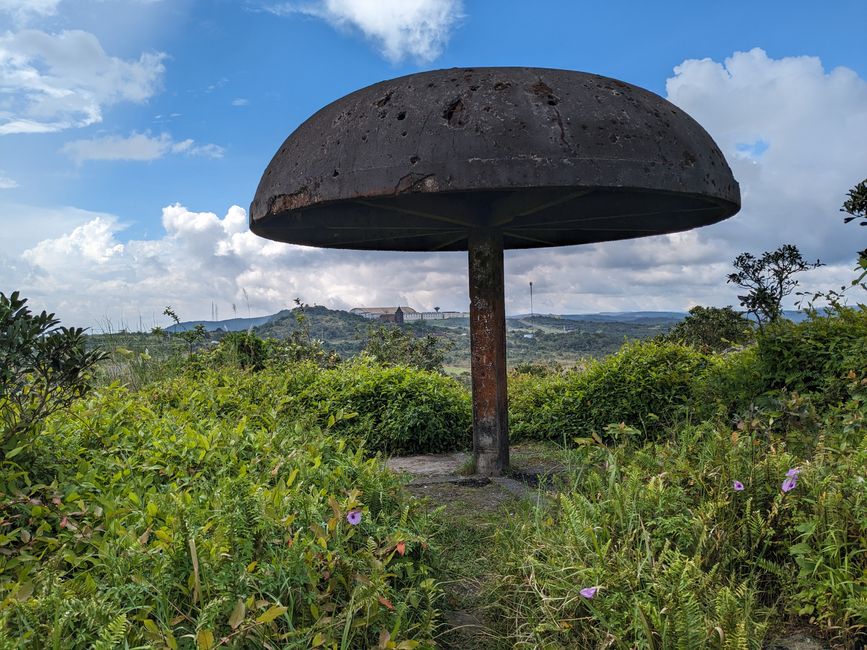
We walked around the individual buildings and went into some of them. Apparently parties also take place here, as you come across many bottles of alcohol and boxes of leftover food.

At dusk we drive back down to Kampot.
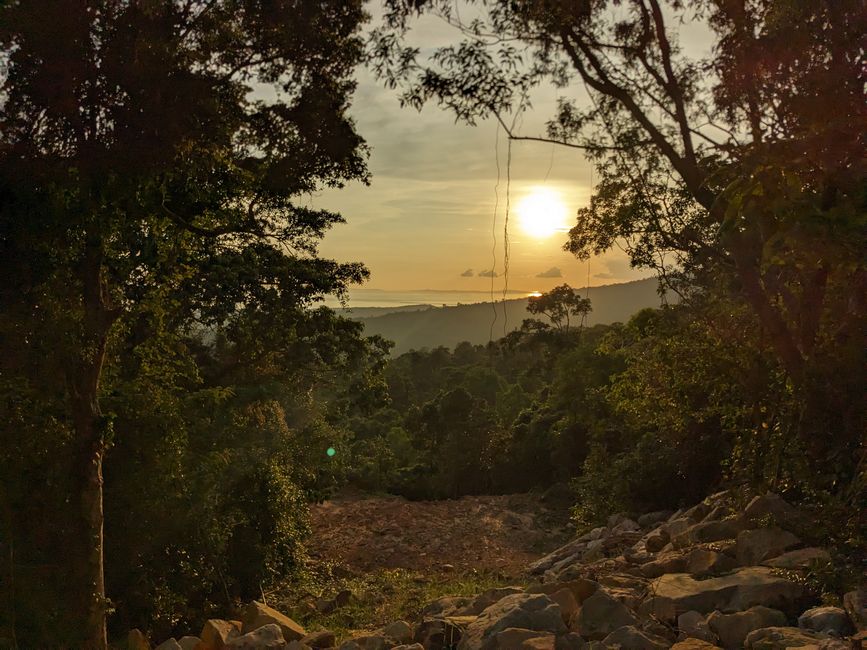
Prenumerera på nyhetsbrev
Svar
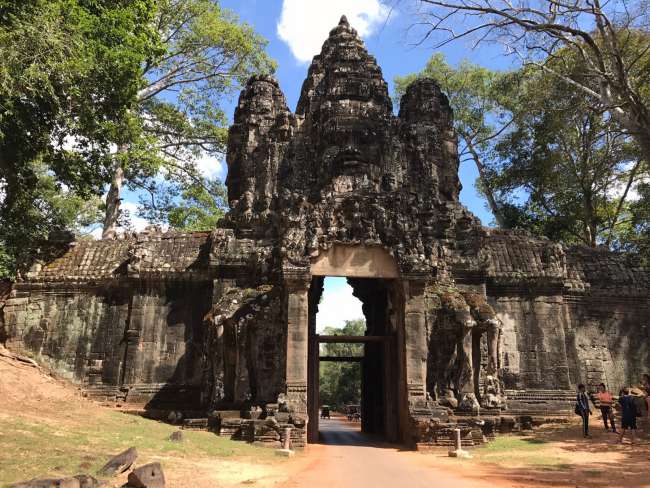
Reserapporter Kambodja

